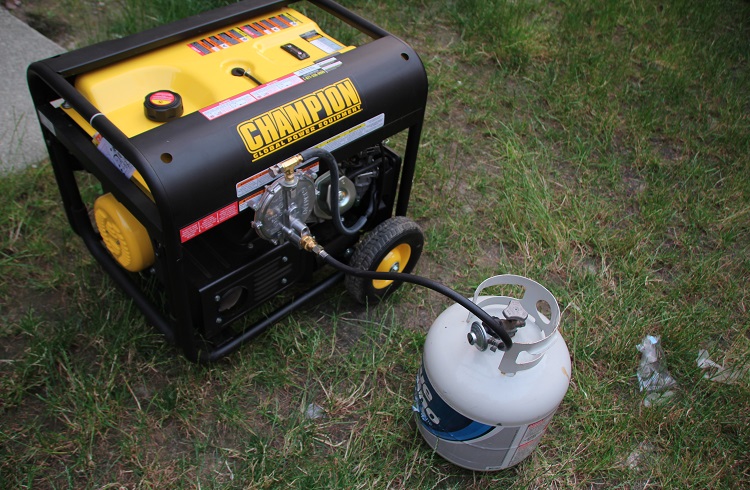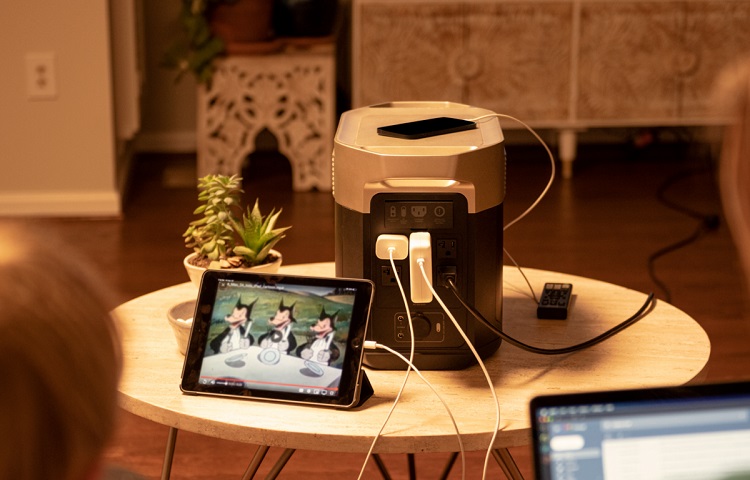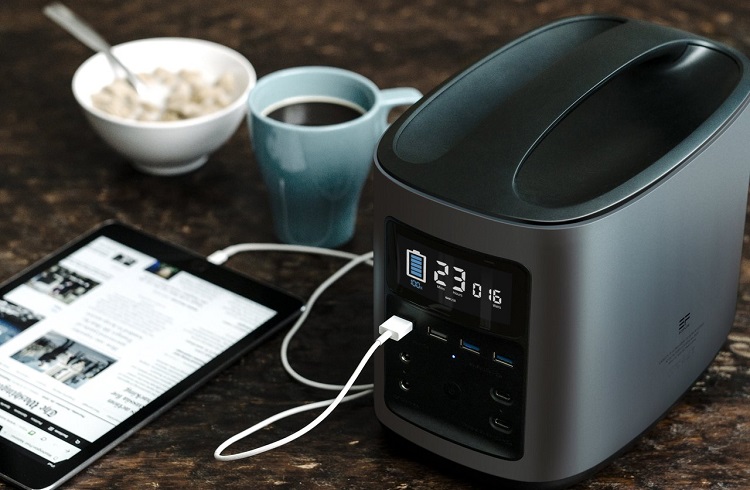A generator comes to your rescue when there’s a power cut, but can you use a generator in an apartment?
While you might immediately assume a generator is too noisy and dangerous for a small living space, this isn’t necessarily true.
So, can you use a generator in an apartment?
A portable generator can be convenient to run devices in your apartment, but if it runs on fuel you will need to ensure you keep it outside and you must get your landlord’s permission before going ahead.
That said, there are other important things to know before you get a generator for apartment living. The good news is that some units can be used indoors.
Can You Use A Gas-Operated Generator In An Apartment?

If you want to purchase a gas-run generator for your apartment, tread carefully!
Any device that runs on gas will release carbon monoxide, a dangerous gas that’s odorless, colorless, and can be fatal. You should never use a gas-run generator (or any other appliance, for that matter) in an enclosed space.
If you have a balcony, you might think you can place your gas-operated generator there. But this could be problematic.
For starters, you will have to check with your landlord and consider local fire codes. If your balcony is close to your neighbor’s apartment, this could be dangerous as a result of the carbon monoxide being too close to vents and windows.
If you have a rooftop balcony and no one is within close proximity, it might be allowed – but again, make sure you check with your landlord.
What Generator Should You Use In Your Apartment?

Choosing a small, compact generator is always recommended in a small living space. It’s also important to choose a generator that doesn’t run on gas or other fuel, such as diesel.
One that runs on batteries is the safest generator option for apartments. This type of generator doesn’t produce lots of noise and it doesn’t produce dangerous fumes. Sometimes it’s called a portable power station.
A battery-operated generator is versatile because it usually comes with a variety of charging options, such as AC charging and solar charging.
These types of generators are usually around the size of a small appliance, such as a microwave, but they have the capacity to provide power to devices and small appliances for a few hours.
What Size Generator Do You Need?
A small generator that’s got a minimum of 1,000 watts will be able to power up a fridge and some lights for three to five hours.
If you experience shorter power cuts, such as those that last two hours, you’ll be able to choose one with a bit less capacity, which should be enough to power up small devices.
Check out Generator Grid’s online calculator where you can select what appliances you’ll need to power up from a list and get a more accurate idea of the generator capacity you’ll require.
Tips To Safely Run A Battery-Operated Generator

Although battery-operated generators are safe for use inside apartments, you should remember some important safety tips when using them.
- Never get your generator wet. A generator and all its parts need to be completely dry at all times. Moisture that gets inside the generator can cause a variety of problems, such as short circuits, fires, explosions, or operational failures.
- Allow the generator to cool down properly before you charge it. If the generator is still hot when you try to charge it, this could prevent it from charging effectively. For increased safety, never leave the apartment when the generator is charging.
- Never put any metal into the generator, such as wires or pins. Metal can short circuit the unit.
- Make sure you fully charge and then completely discharge the battery once every three months. This is important generator maintenance to keep the battery healthy. If you don’t use the generator for a long time, this could disrupt its battery life.
- Don’t expose your battery-run generator to extreme temperatures as this can damage it.
Related Questions
How should you dispose of a generator battery?
When the battery reaches the end of its lifespan, which you’ll know because the unit won’t switch on properly, you’ll have to dispose of it. Since batteries are hazardous for the environment, follow local regulations for battery disposal and recycling.
How long will a generator battery last?
Generator batteries must usually be replaced every two or three years.
Conclusion
If you regularly experience power cuts or you want to ensure you’re prepared for the event of not having electricity in your apartment, you should consider purchasing a generator.
In this article, we’ve looked at what you need to know about setting up a generator in your apartment and what the best generators are, as well as which ones to avoid.
Sources:


[lasso rel="emergency-preparedness-more-a-manual-on-food-storage-and-survival-2nd-edition-revised-and-updated" id="35334"]